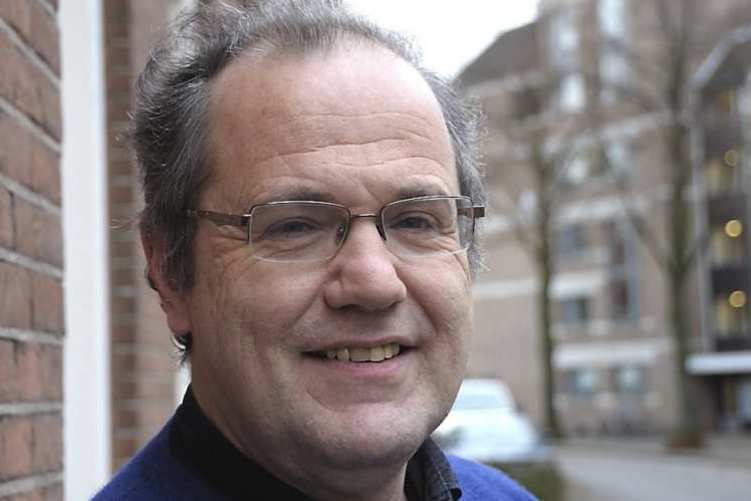Henk Rijkers, the editor of the Catholic weekly, Katholiek Nieuwsblad, was forced out of his job on Christmas eve for questioning Amoris Laetitia. Rijkers held the post of editor for four years and is a 59-year-old father of three adolescent children. Katholiek Nieuwsblad is known as an independent, traditional Catholic newspaper, but since the forcing out of Rijkers Huub Vromen, the new president of the paper’s governing council, has announced a change in direction, “the tone must become more positive, with less emphasis put on doctrine and more on pastoral issues”.
Lifesite News reports:
“Under Rijkers’ direction, Katholiek Niewsblad (KN) published several articles setting out a critical position on Communion for the divorced and “remarried.” At that point, tension was already running high with Vromen, a former school director who objected to what he saw as overly harsh criticism toward the Pope.
Vromen became more critical of Rijkers’ leadership, leading the 59-year-old father of three adolescent children to realize he could not in good conscience continue as head of the editorial staff. On the day before Christmas, there was a contractual termination of his labor agreement.
Under Dutch law, Rijkers could not be sacked in the absence of an objective cause required to justify firing an employee, because he always fulfilled his professional obligations to the satisfaction of KN’s governing council.
But he had no other option than to negotiate his departure. Rijkers was faulted for upholding “Catholic truth,” he told LifeSiteNews, when the new leadership of KN wanted the paper to look for the “good” in other points of view. Among the reasons advanced by Vromen was Katholiek Nieuwsblad’s loss of subscribers since 2013, suggesting that readers were reacting to the paper’s rigid approach.
Many conservative print media in Europe are losing readers because of competition from free news sources on the Internet, a view that in KN’s case has been corroborated by the growing interest for its active website, which attracted 200,000 individual visitors last year.
Besides, Rijkers underscored, convicted Catholics are a rapidly disappearing species in the Netherlands. According to a survey in 2014, 49 percent of the Dutch said they have no religion at all, and only 24 percent proclaimed themselves Catholics, less than half of the proportion registered in 1900. Of these self-declared Catholics, less than 5 percent are regular churchgoers.
Rijkers is convinced that the only way Catholic media can continue to exist is by catering for those who are still attached to the faith.
While he and the editorial staff were accused by the KN governing body of being too rigid and traditional, it says a lot about Holland that Katholiek Nieuwblad is in no way “traditionalist” from a liturgical point of view, even if some attention was occasionally paid by the weekly to initiatives in that direction from groups faithful to Rome.”
Read the entire Lifesite News article, “Dutch Catholic editor questioned Pope Francis, and now he’s out of a job.”
Comment
This is not the first time that a Catholic journalist has lost his livelihood for publishing critique of aspects of Pope Francis’s pontificate. In August 2013 Alessandro Gnocchi and Mario Palmaro were sacked from Radio Maria two days after publishing an article together in Il Foglio. Mario Palmaro was seriously ill and died in 2014. Pope Francis phoned him a couple of months after his sacking on hearing that he was ill, during the conversation they discussed Palmaro’s criticism:
When he got the phone call, Palmaro said he felt a “duty to tell the Pope that I criticized him. I did not think he would have read my articles, but I thought I was a coward in receiving such a great gift as a Pope’s phone call and not being sincere with him.” Pope Francis responded saying that he “understood that the critics had been moved by love for the Pope.” Palmaro concluded that “critics are useful, and the decisions taken during these last days confirmed me of the existence of the problems I highlighted together with my colleague Gnocchi.”
Adam Shaw lost his job with the Catholic News Service in November 2013 for writing a post that compared Pope Francis with President Obama.
In 2014 Professor Roberto de Mattei was also sacked from his weekly radio show by Radio Maria for publishing criticism of Pope Francis. Roberto de Mattei is Professor of Modern History and of the History of Christianity at the European University of Rome.
In 2015 Pat Archbold, one of the founders of Creative Minority Report, was sacked by EWTN’s National Catholic Register.
Canon law protects the rights of Catholics to make their concerns known to the faithful, while at the same time maintaining respect for sacred pastors and persons. Expressing criticism of the teachings or decisions of a pope is not inherently “disrespectful”. It is important that everyone in the Church keeps a watchful eye on respect for Canon 212:
Can. 212 §1. Conscious of their own responsibility, the Christian faithful are bound to follow with Christian obedience those things which the sacred pastors, inasmuch as they represent Christ, declare as teachers of the faith or establish as rulers of the Church.
§2. The Christian faithful are free to make known to the pastors of the Church their needs, especially spiritual ones, and their desires.
§3. According to the knowledge, competence, and prestige which they possess, they have the right and even at times the duty to manifest to the sacred pastors their opinion on matters which pertain to the good of the Church and to make their opinion known to the rest of the Christian faithful, without prejudice to the integrity of faith and morals, with reverence toward their pastors, and attentive to common advantage and the dignity of persons.
Originally published at EWTN Great Britain.


